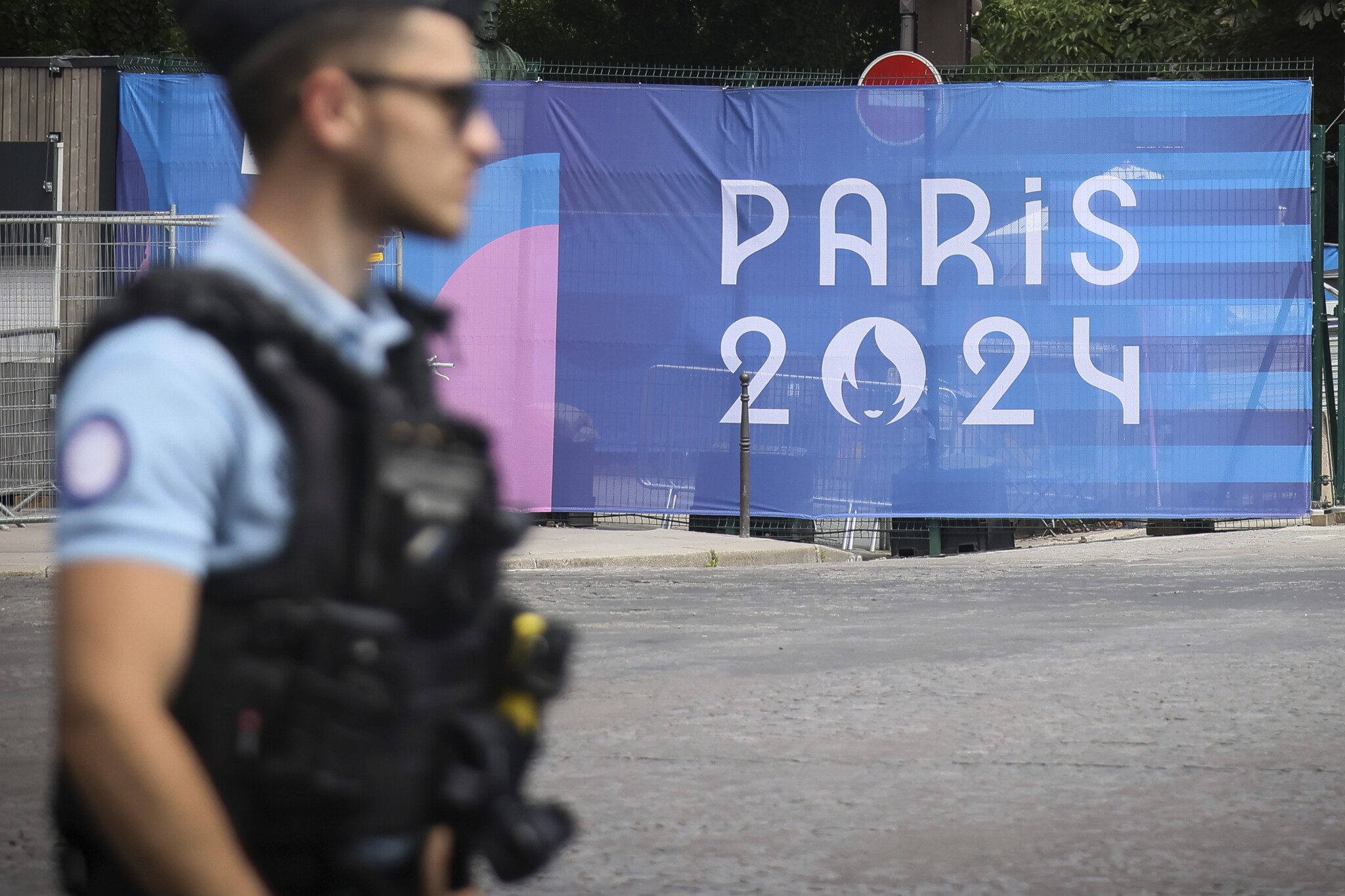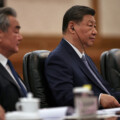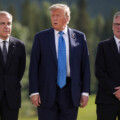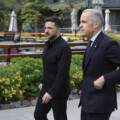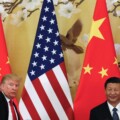The early morning of September 5, 1972, will forever remain a stain on the memory of the Olympics. As athletes slept in the Olympic village in Munich, eight terrorists from Black September, an offshoot of the Palestinian group, Fatah, broke into the village and forced their way into the Israeli quarter, killing two athletes and taking nine hostages. While negotiations were ongoing for the hostages, the games went on as normal. In the end, 11 Israeli athletes were murdered, with Jewish blood once again being shed on German soil.
Now 52 years later, on July 26th, 2024, the Paris Olympics kicked off with its opening ceremony featuring performances in a display meant to celebrate global unity. To safeguard that celebration and the ensuing games, everywhere else surrounding the spectacle, the city of lights has been transformed into a fortress of security, with layers of protection spread across the city’s iconic landmarks.
The security measures have created an almost surreal scene in Paris. Usually bustling with tourists, the areas around the Seine are now dotted with checkpoints, fencing, and other conspicuous markers indicating a significant security presence. Local businesses are feeling the pinch, with some reporting a steep drop in customers due to the tight security perimeters meaning that, for many, the expected Olympic boom has turned into a financial bust.
Yet, these inconveniences are a small price to pay for the safety of millions of visitors and participants. The drop in petty crime, particularly violent theft, is a silver lining that has brought some relief to the residents and authorities alike.
Any security operation around Paris during the Olympics would be a comprehensive and highly coordinated effort. It would include a strong presence of law enforcement and military personnel, advanced surveillance technologies, and strict access controls at venues, all of this being under the main control of the French police and the Gendarmerie. Teams such as Research, Assistance, Intervention, Dissuasion (RAID) and Groupe d’Intervention de la Gendarmerie Nationale (GIGN), the units that in the past have responded to major terrorist attacks on French soil including the Charlie Hebdo attacks and the attack in Toulouse targeting a Jewish school that killed children as well as the Rabbi.
The ability of these teams has been built by necessity as there has been a real significant insider threat from local terrorist networks well entrenched in France. Cases in which the supplies and funding may come from external sources, ensuring they have escape routes, but the attackers were French nationals or had settled status. Sadly, there are almost too many attacks to talk about, but a common theme is that all the perpetrators were legally in France.
From the outset, the French government has been on high alert, deploying around 30,000 police officers daily, with a surge to 45,000 during the high-profile opening ceremony on the Seine River. To back them up, 10,000 soldiers have set up the largest military presence Paris has seen since the Second World War. Their mission is to be ready to respond to any threat within 30 minutes.
The extensive security measures led to the arrest of over 200 individuals during the first week of the games. Some of these arrests were pre-emptive, targeting individuals suspected of plotting attacks or other criminal activities. Despite these arrests, French Interior Minister Gérald Darmanin has reassured the public that there haven’t been any “tangible” terrorist threats detected so far. However, the arrests underscore the ongoing vigilance required to keep such a massive event secure.
The Paris Olympics comes at what we keep calling “unprecedented times.” Russia’s aggression against Ukraine continues, elections across Western democracies bringing change, as well as an upcoming election in the USA, and Israel’s war against Hamas in the wake of October 7th is ongoing, all while we’ve seen a rise in hate incidents and violent attacks around the world. It is no surprise that heightened political tensions spill over into high-profile international events like the Olympics, or even a Taylor Swift concert—the high-profile artist’s recent concert in Austria was cancelled following credible threats of an ISIS attack.
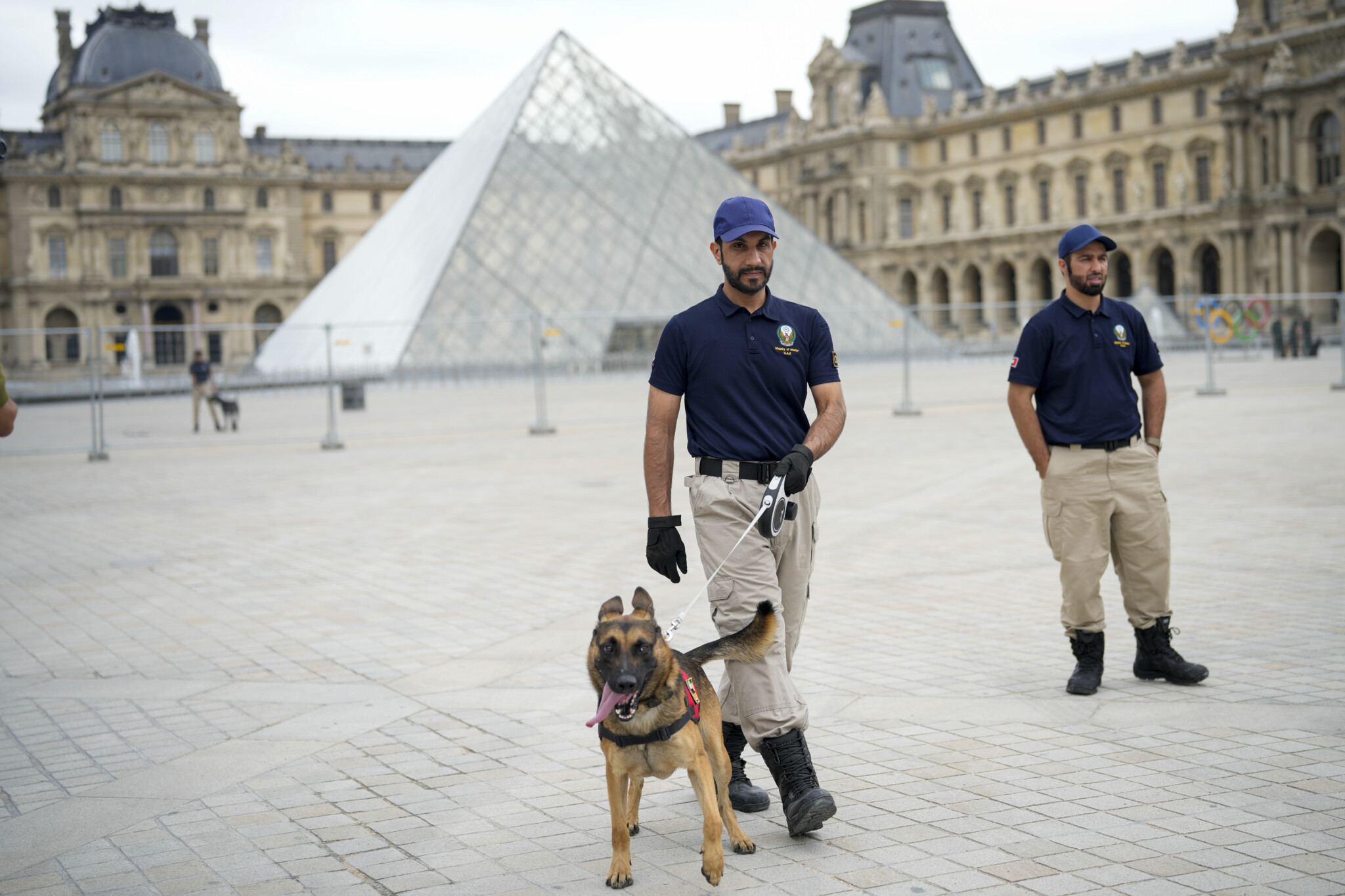
Members of a security team patrol a square near the Louvre in Paris, France, July 26, 2024. Ebrahim Noroozi/AP Photo.
While there haven’t been any major terror threats, the shadow of espionage looms over the games. French authorities arrested a Russian national believed to be involved in a plot to destabilise the games. This case is being handled as a counter-espionage operation rather than a direct terrorist threat. Additionally, there were other concerning incidents tied to Russian elements, including a bizarre episode where symbolic coffins were placed near the Eiffel Tower.
The threats the Olympics face go beyond the conventional, with advancements in technology playing a crucial role, including through cyber attacks. The ongoing war being waged by Israel against Hamas, and with rising tensions with Hezbollah and Iran, following the assassination of senior officials in all three of these organizations last week, will have significant impacts on the security at the Olympics as the games come to a close. Notably, there were threats made directly to several Israeli athletes prior to the start of the games, leading to the bolstering of their security team with additional Shin Bet guards and French security officers.
The war in Gaza has led to cries for a global Jihad, as Khaled Meshaal, the former head of Hamas’ political bureau, called for Arabs worldwide to take part in a Jihad against Israel and its supporters, which to them includes France. While the Olympics operate under the guise of promoting tolerance through respectful competition, the on-the-ground reality can be much different, such as when protesters chanted “Heil Hitler” and waved Palestinian flags during Israel’s soccer match against Paraguay. While that may be argued as “peaceful protesting” these actions can escalate, especially if counter-protests occur, potentially leading to clashes or creating opportunities for malicious actors to exploit the situation.
As the games wind down, the focus remains on maintaining this delicate balance between security and the celebratory spirit of the Olympics. So far, there’s hope that the worst has been avoided and that Paris 2024 will be remembered for its sporting achievements rather than any security incidents. For now, though, the vigilance continues, with French authorities determined to ensure that their time as hosts doesn’t become another stain in the history of the Olympics.
